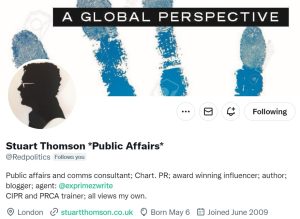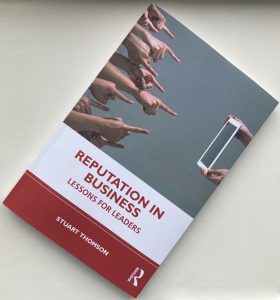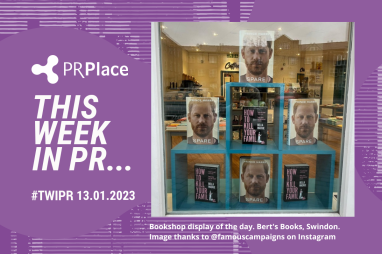#50over50: Stuart Thomson
Thomson observes that crisis communication has traditionally focused on the media, and latterly on social media, ‘but there are a whole range of different audiences, particularly the political ones, that have a real impact on long-term reputation.’


 Then there was his decision to shun the local Kent and nearby London clubs supported by his classmates in favour of supporting Liverpool FC. There’s the Twitter handle that makes his political affiliation with the Labour Party clear:
Then there was his decision to shun the local Kent and nearby London clubs supported by his classmates in favour of supporting Liverpool FC. There’s the Twitter handle that makes his political affiliation with the Labour Party clear:  Alongside the day job, Thomson says he has always enjoyed writing. In addition to his published
Alongside the day job, Thomson says he has always enjoyed writing. In addition to his published 

